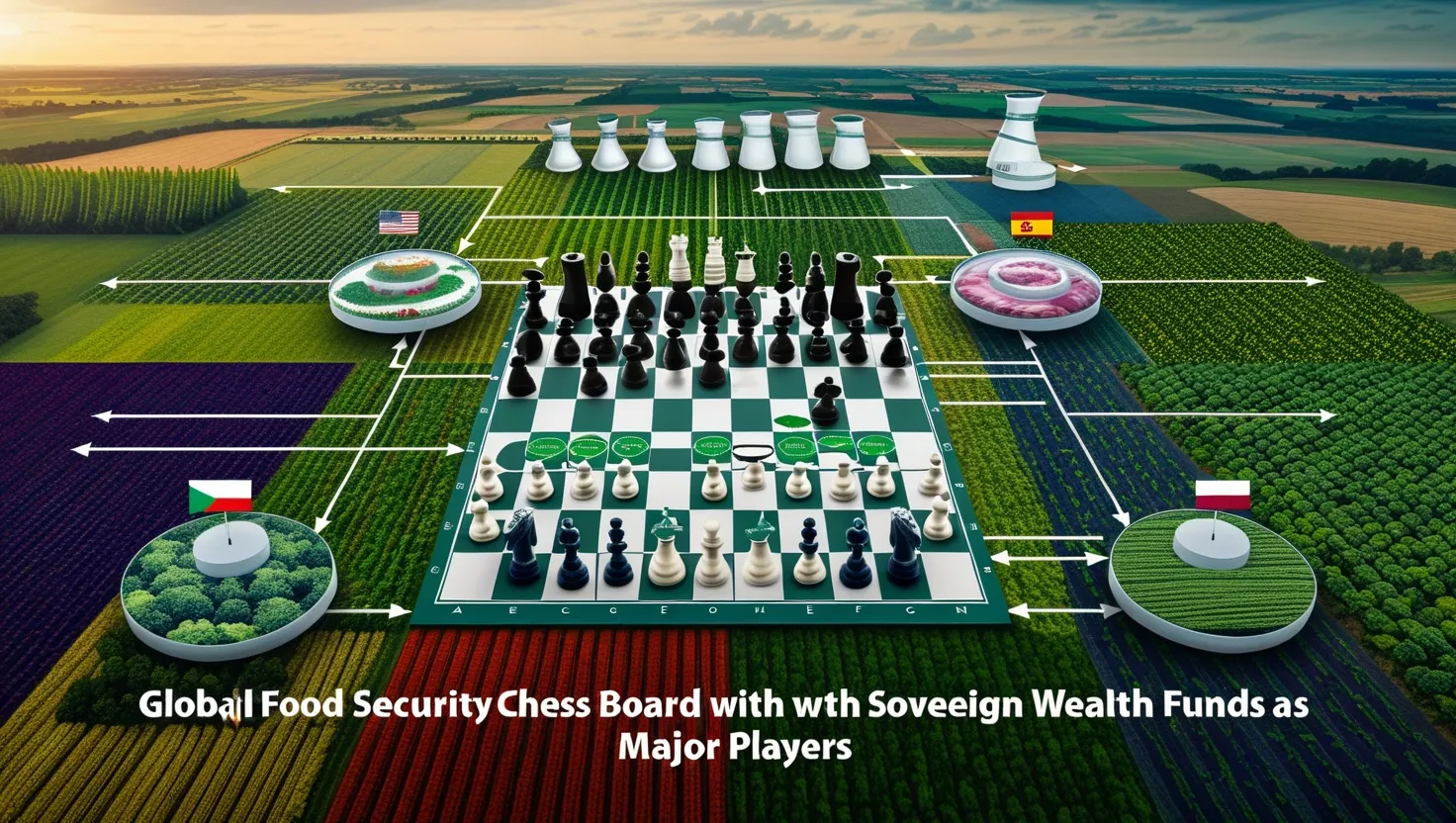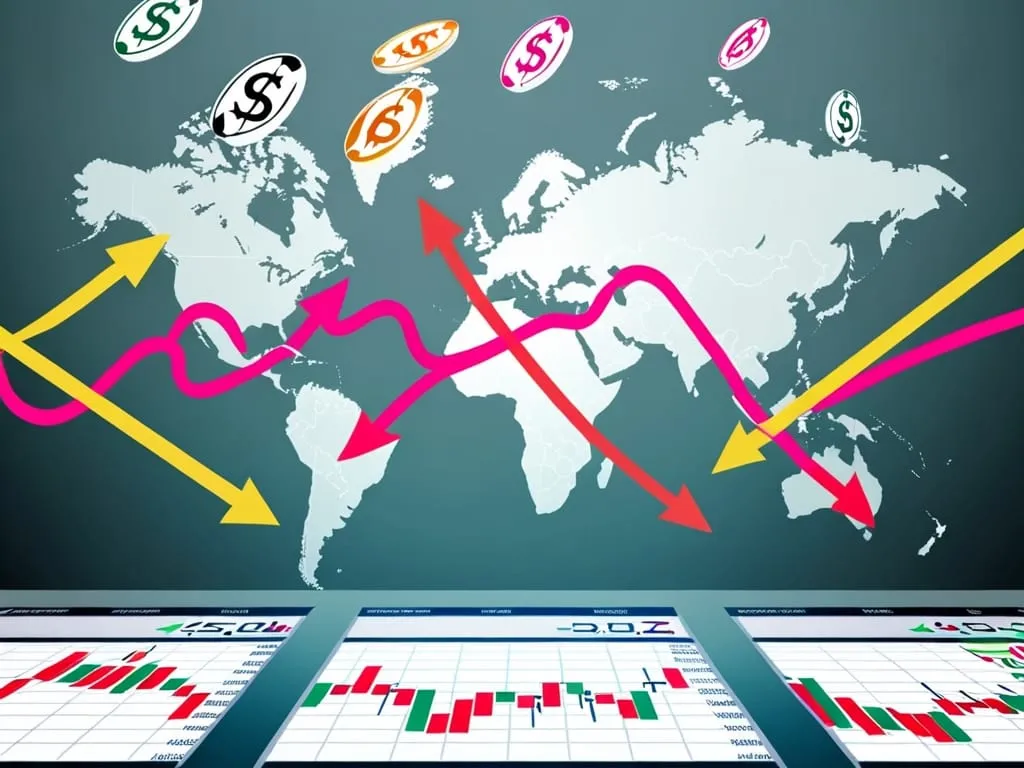In recent years, sovereign wealth funds (SWFs) have emerged as significant players in the global food security landscape. These state-owned investment vehicles, often flush with capital from natural resource exports, are increasingly looking beyond their borders to secure food production capabilities and agricultural assets. This shift reflects a growing recognition that food security is inextricably linked to economic and national security.
Let’s examine how four major sovereign wealth funds are approaching food security investments, each with its own unique strategy and priorities.
Gulf states have been particularly active in acquiring agricultural land across Africa and Asia. The strategy is straightforward - secure arable land and water resources to produce food for their home countries. However, the implications are far-reaching.
Take the United Arab Emirates, for example. Despite having almost no ecological base for large-scale agriculture, the UAE now exports more agricultural products by value than Egypt, a country with a rich agricultural heritage. This remarkable transformation stems from the UAE’s aggressive investments in agricultural land and food processing facilities abroad.
These land acquisitions, often referred to as “land grabs” by critics, have reshaped ownership patterns in countries like Sudan, Ethiopia, and Pakistan. While proponents argue these investments bring much-needed capital and expertise to developing agricultural sectors, detractors warn of potential exploitation and displacement of local communities.
“He who controls the food supply controls the people.” - Henry Kissinger
This quote takes on new meaning in the context of SWF investments. Are we witnessing the emergence of a new form of economic colonialism, or simply the natural evolution of global food systems in response to climate change and population growth?
China’s approach to food security investments differs somewhat from the Gulf states. Rather than focusing primarily on land acquisition, China has made strategic investments in global food processing and distribution companies. This strategy allows China to exert influence over various points in the food supply chain without necessarily owning the land itself.
For instance, China’s acquisition of Smithfield Foods, the world’s largest pork producer, sent shockwaves through the global agricultural industry. It signaled China’s intent to secure protein sources for its growing middle class while also gaining access to advanced food processing technologies.
China’s sovereign wealth fund has also invested heavily in agricultural commodity trading firms, giving it greater insight into and potentially influence over global food prices. This approach reflects China’s broader economic strategy of securing critical resources and technologies to support its long-term development goals.
Norway’s sovereign wealth fund, the largest in the world, has taken yet another approach to food security investments. Recognizing the challenges posed by climate change to traditional agriculture, Norway has diversified into sustainable agriculture technology.
From vertical farming systems to plant-based protein companies, Norway is betting on innovation to address future food security challenges. This strategy aligns with the fund’s broader commitment to sustainability and responsible investing.
Norway’s investments raise an intriguing question: Can technology solve our food security challenges, or are we overlooking more fundamental issues of resource distribution and consumption patterns?
Singapore, a city-state with limited land and natural resources, has adopted a portfolio approach to food security investments. Recognizing its vulnerability to supply chain disruptions, Singapore’s sovereign wealth funds have invested across the entire food value chain - from high-tech urban farming solutions to stakes in major food retailers.
This diversified strategy aims to build resilience into Singapore’s food supply, ensuring multiple sources and production methods. It’s a approach that other small, resource-constrained nations might do well to emulate.
“Agriculture is the most healthful, most useful and most noble employment of man.” - George Washington
While Washington’s sentiments reflect an agrarian ideal, how do they apply in an era of sovereign wealth funds and global agribusiness? Is there still nobility in agriculture when it becomes a tool of national strategy?
The rise of sovereign wealth funds as major players in global food security has profound implications for international relations and economic power dynamics. Countries without such investment capabilities may find themselves increasingly dependent on relationships with these strategic investors. This creates new forms of economic leverage that could reshape diplomatic and trade relationships.
Moreover, these investments raise complex questions about land rights, food sovereignty, and the future of rural communities in investment recipient countries. When a foreign state owns large tracts of agricultural land, who truly benefits from its productivity?
At the same time, proponents argue that SWF investments bring much-needed capital and expertise to agricultural sectors in developing countries. They point to increased productivity, job creation, and technology transfer as positive outcomes of these investments.
The truth, as always, likely lies somewhere in between these extremes. What’s clear is that food security investments by sovereign wealth funds are reshaping global agriculture in ways that will have long-lasting impacts.
“The ultimate goal of farming is not the growing of crops, but the cultivation and perfection of human beings.” - Masanobu Fukuoka
Fukuoka’s philosophy presents a stark contrast to the large-scale, technologically-driven approach favored by many SWFs. How do we reconcile these differing visions of agriculture’s purpose and value?
As climate change continues to impact global food production, the role of sovereign wealth funds in ensuring food security is likely to grow. Their vast financial resources and long-term investment horizons make them uniquely positioned to address challenges that may be beyond the capacity of individual farmers or even national governments.
However, this trend also raises important questions about equity and access. If wealthy nations can essentially outsource their food production to other countries, what happens to local food systems and rural economies in those places?
Furthermore, the concentration of agricultural assets in the hands of a few large state-owned investors could potentially lead to market distortions and price volatility. How do we ensure that these investments contribute to global food security rather than exacerbating existing inequalities?
As we look to the future, it’s clear that the intersection of sovereign wealth, food security, and global agriculture will be a critical area to watch. The strategies employed by these funds will likely shape not just what we eat, but how and where it’s produced.
“The day is not far off when the economic problem will take the back seat where it belongs, and the arena of the heart and the head will be occupied or reoccupied, by our real problems - the problems of life and of human relations, of creation and behavior and religion.” - John Maynard Keynes
Keynes’ optimistic vision seems at odds with the current focus on economic security through food investments. Are we moving closer to or further from this ideal as sovereign wealth funds reshape global agriculture?
In conclusion, the growing role of sovereign wealth funds in food security investments represents a significant shift in how nations approach agriculture and food production. While these investments have the potential to increase productivity and resilience in global food systems, they also raise complex ethical and economic questions that we as a global society will need to grapple with in the coming years.
What do you think? How will these trends impact your own relationship with food and agriculture? And what role should governments and citizens play in shaping the future of our global food system?






